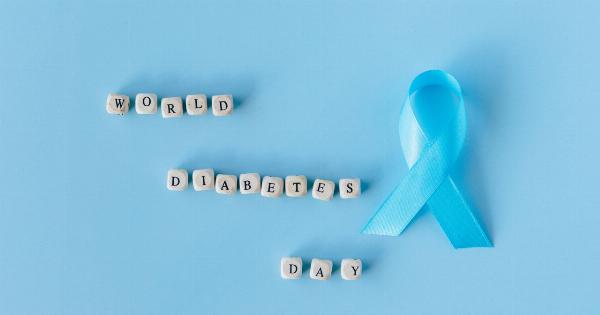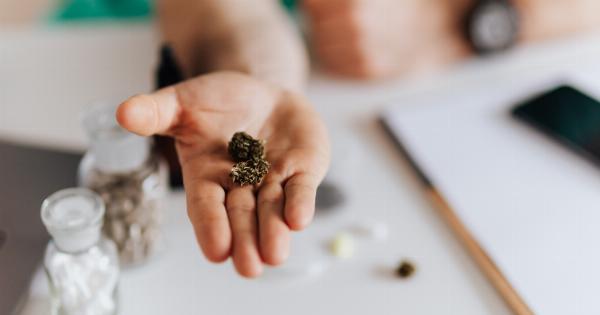Cystitis is a common urinary tract infection that primarily affects women. It can cause discomfort and pain, making it important to identify and eliminate any factors that may worsen the symptoms.
While some aspects may be beyond your control, there are several common triggers that can make cystitis worse. By identifying and avoiding these triggers, you can improve your overall quality of life and minimize the frequency and severity of cystitis flare-ups.
In this article, we will explore seven things that could be making your cystitis worse and provide tips on how to manage them.
1. Urine Irritants
One of the most important factors in managing cystitis is watching your intake of urine irritants. Certain foods and beverages can irritate the bladder lining, leading to increased inflammation and worsening cystitis symptoms.
Some common urine irritants include:.
- Spicy foods
- Caffeine
- Alcohol
- Carbonated drinks
- Citrus fruits and juices
- Tomatoes
- Artificial sweeteners
To determine if any of these urine irritants worsen your cystitis symptoms, try eliminating them from your diet for a few weeks and observe any changes. If you notice an improvement, consider avoiding them in the future.
2. Poor Hygiene
Good personal hygiene is essential for preventing and managing cystitis. Failing to maintain proper hygiene can introduce harmful bacteria into the urinary tract, leading to infections and exacerbating cystitis symptoms. To minimize the risk:.
- Always wipe from front to back after using the toilet.
- Wash your genital area with mild soap and water regularly.
- Avoid using products that may irritate the urethra, such as scented toilet paper or harsh soaps.
- Urinate before and after sexual intercourse to flush out any bacteria.
By adopting good hygiene practices, you can reduce the risk of infections and prevent worsening cystitis symptoms.
3. Holding in Urine
Delaying urination for prolonged periods can contribute to the development and progression of cystitis. When you hold in urine, harmful bacteria have more time to multiply and cause infections.
Additionally, urine that stays in the bladder for too long can irritate the bladder lining and worsen cystitis symptoms. To prevent this:.
- Urinate as soon as you feel the need to go.
- Empty your bladder completely each time.
- Avoid holding in urine for extended periods, especially if you frequently experience cystitis flare-ups.
By emptying your bladder regularly and avoiding prolonged holding, you can minimize the risk of worsening cystitis symptoms.
4. Dehydration
Dehydration can be harmful to your overall health and exacerbate cystitis symptoms. When you don’t drink enough water, your urine becomes more concentrated and irritates the bladder lining. To stay well-hydrated and manage cystitis:.
- Drink at least eight glasses of water each day.
- Avoid beverages that can worsen cystitis symptoms, such as caffeine or alcohol.
- Consider incorporating herbal teas or unsweetened cranberry juice into your fluid intake.
By maintaining proper hydration, you can help flush out bacteria and reduce the risk of cystitis flare-ups.
5. Stress
Stress can have a detrimental impact on your overall health, including your urinary system. When you are stressed, your immune system weakens, making you more susceptible to infections.
Additionally, stress may disrupt your hormonal balance, making cystitis symptoms worse. To manage stress and reduce its effects on cystitis:.
- Practice relaxation techniques, such as deep breathing exercises or meditation.
- Engage in regular physical activity to relieve stress and boost your immune system.
- Consider joining a support group or talking to a therapist to manage stress effectively.
By managing stress, you can improve your overall well-being and potentially reduce the frequency and severity of cystitis episodes.
6. Tight Clothing
Wearing tight clothing, especially around the genital area, can create a warm and moist environment that promotes bacterial growth. This can lead to urinary tract infections and worsen cystitis symptoms. To prevent this:.
- Avoid tight-fitting pants, jeans, or underwear.
- Choose loose-fitting, breathable fabrics to allow for proper air circulation.
- Change out of wet bathing suits or sweaty workout clothes as soon as possible.
By opting for comfortable and breathable clothing, you can reduce the risk of bacterial growth and potential worsening of cystitis symptoms.
7. Certain Medications
Some medications may worsen cystitis symptoms or increase the risk of developing urinary tract infections. If you suspect that your medications are contributing to your cystitis, consult your healthcare provider.
They may be able to adjust your medication regimen or recommend alternatives to alleviate symptoms.
If you experience recurring cystitis episodes, it is essential to consult a healthcare professional for an accurate diagnosis and personalized treatment plan.
While avoiding triggers can help manage symptoms, medical advice is crucial for addressing the underlying causes of cystitis.





























